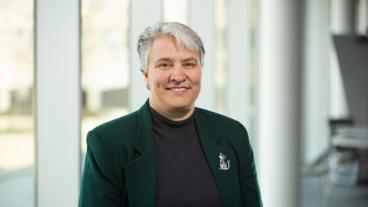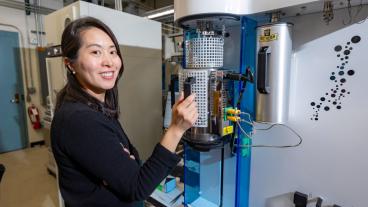Colorado School of Mines has been awarded $3 million in funding from the U.S. Department of Energy’s Advanced Research Projects Agency-Energy (ARPA-E) to develop a first-of-its-kind hybrid power generation system that could provide electricity to supermarkets, big-box retailers and other commercial buildings at high efficiency and low cost.
Rob Braun, associate professor of mechanical engineering, is the lead investigator on the project, which is a collaboration with researchers at Colorado State University and industry partners Kohler Power Systems and Air-Squared, Inc.
“We feel this project could introduce a paradigm shift in the fuel cell field by demonstrating that a hybrid fuel cell system can drive both radically lower costs and increase electric efficiency beyond 70 percent for small-scale, distributed power applications,” Braun said.
Mines received the competitive award from ARPA-E’s Innovative Natural-gas Technologies for Efficiency Gain in Reliable and Affordable Thermochemical Electricity-generation (INTEGRATE) program, which supports hybrid system designs that integrate fuel cells with a gas turbine or reciprocating internal combustion engine. This month, INTEGRATE announced a total of $16 million in funding for eight teams working to develop devices that can generate electricity at greater than 70 percent efficiency while keeping costs competitive with commercial scales of 100 kilowatts or greater.
The system being developed at Mines will combine a lower-temperature, pressurized solid oxide fuel cell stack with a custom-designed natural gas-powered internal combustion engine, leveraging both cost and thermodynamic synergies to deliver high-efficiency power production. Exhaust gas from the fuel cell will be coupled with the engine, and a compressor will supply pressurized air.
“At 100 kilowatts, this system would be almost double the efficiency of any other generators – large combined-cycle power plants at 500-megawatt scale are the only things that come close, and yet are still some 10 percentage points lower in efficiency,” Braun said. “You can’t get this kind of efficiency at this small scale right now – there’s no power generator from natural gas that’s anywhere close.”
The Mines team, which will focus on the design modeling, control and fuel cell testing, also includes Neal Sullivan, associate professor of mechanical engineering and director of the Colorado Fuel Cell Center, and Tyrone Vincent, professor of electrical engineering. CSU will work on the custom engine in conjunction with Kohler Power Systems.
“What’s exciting about this project is that we have strong industry collaboration, and it is development and systems integration at a meaningful scale,” Braun said. “Because our commercialization partner [Kohler] is on this program from the start, it will help accelerate moving university-led research achievements toward adoption in the marketplace. They will be the ones who take it to market should it be successful.”
CONTACT
Emilie Rusch, Public Information Specialist, Communications and Marketing | 303-273-3361 | erusch@mines.edu
Mark Ramirez, Managing Editor, Communications and Marketing | 303-273-3088 | ramirez@mines.edu



